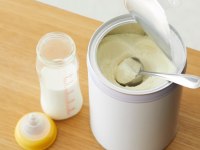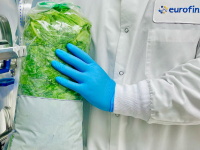Resource Library
Search >>
Welcome to the Eurofins US Food, Feed, and Supplement testing laboratories resource library.
Here you will find blogs, webinars, scientific articles, videos, case studies, white papers, and more about the services we offer for your industry.
Use the box below to search, or click on the service or industry link that you would like to review resources for and you will be taken to all of the resources we have on that topic. Please reach out to us if you are looking for information and do not see it here!
Search >>
Service:
Allergens
Authenticity
Contaminants
Dairy
Environmental Monitoring (EMP)
Food Microbiology Process Validation
GMO Testing
To view by media type, use the buttons below.
Eurofins News:
Selecting the right microbiological testing method isn’t just about speed or cost. It’s about risk management, product integrity, and regulatory compliance. Click to read about the strengths and limitations of different methodologies essential to avoid false negatives, regulatory citations, or costly recalls.
Bird Flu (H5N1) is spreading among birds, cattle, and humans. Experts warn it may be just one mutation away from human-to-human transmission.
Whole genome sequencing is no longer just a research tool. It’s a critical asset in food safety, outbreak response, and public health protection. Read our blog to learn more about whole genome sequencing and how it helps us better understand organisms like Salmonella and Cronobacter in food and infant formula.
Eurofins announces the formation of Eurofins Rapid Microbiology Laboratories, LLC, enhancing rapid testing speed, accuracy, and service for U.S. perishable markets.
Discover how Eurofins demonstrates a proof of concept for Whole Genome Sequencing (WGS) using Oxford Nanopore Technologies to accurately serotype and track Salmonella. Learn how this harmonized NGS approach improves global food safety with reliable, reproducible results.
Keywords:
Scientific Research
Microbiology
This research poster demonstrates how BACGene real-time PCR enables accurate STEC detection in frozen vegetable matrices.
This research poster demonstrates how BACGene real-time PCR enables accurate Salmonella detection in frozen vegetable matrices.
This research poster demonstrates how BACGene real-time PCR enables accurate Listeria monocytogenes and Listeria species detection in frozen vegetable matrices.
Discover why CFIA mandates 1500g lettuce testing for romaine imports from U.S. regions, how larger sample sizes improve detection of E. coli O157:H7, and the differences between pooling subsamples and direct 1500g testing methods. Learn key compliance, validation, and risk management considerations for growers, shippers, and buyers to ensure food safety and maintain market access.
The demand for speed in food production and distribution continues to increase, driven by consumer expectations for freshness, short product shelf lives, and regulatory compliance requirements. In this environment, rapid pathogen detection methods have become essential tools for timely decision-making and effective food safety management. This webinar will provide a technical overview of commercially available rapid methods for detecting key foodborne pathogens, including Salmonella, Listeria spp., and L. monocytogenes. Originally Recorded on August 20, 2025.






















